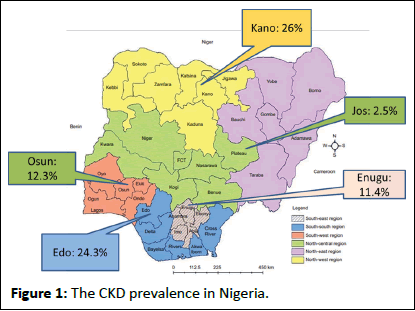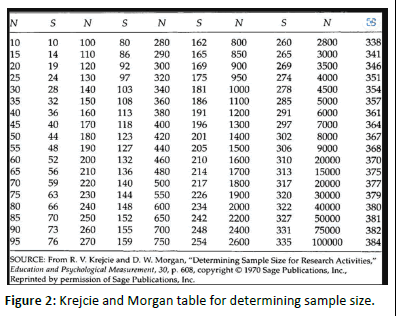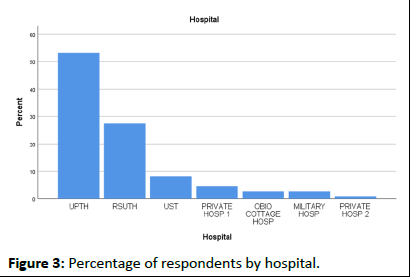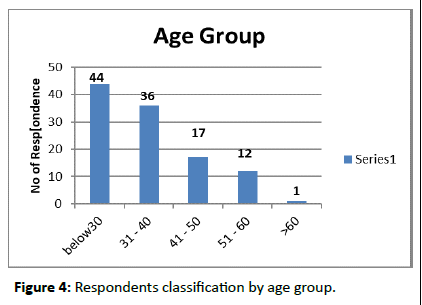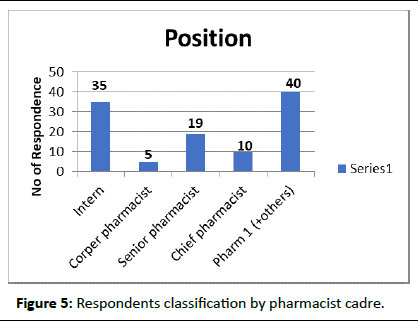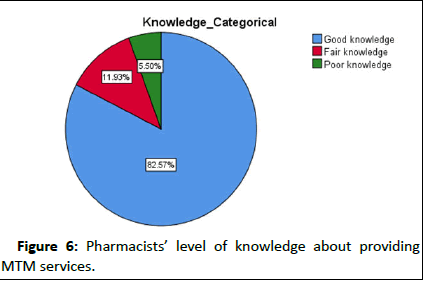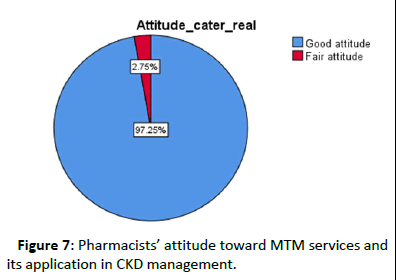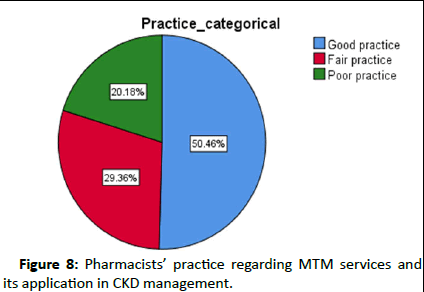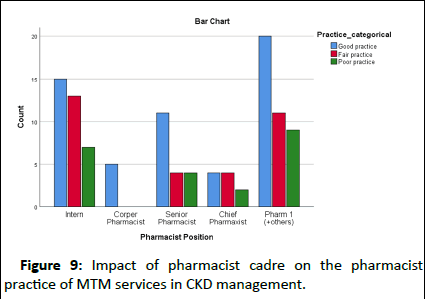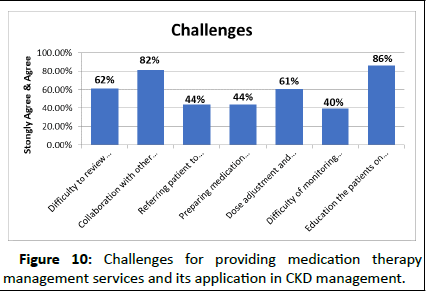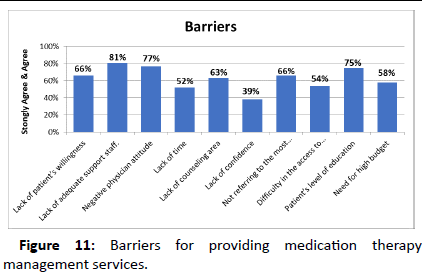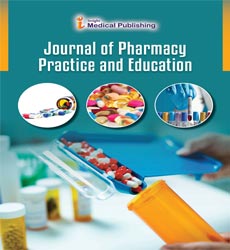Port-Harcourt Pharmacists Knowledge, Attitude and Practice of Medication Therapy Management and Its Application in Chronic Kidney Disease Management
Amara Oluebube Onyeizugbe1*, and Lucky Legbosi Nwidu2
1Department of Clinical Pharmacy, West African Post Graduate College of Pharmacists, Lagos, Nigeria
2Department of Experimental Pharmacy and Toxicology, University of Port Harcourt, Port-Harcourt, Nigeria
- *Corresponding Author:
- Amara Oluebube Onyeizugbe
Department of Clinical Pharmacy,
West African Post Graduate College of Pharmacists,
Lagos,
Nigeria,
E-mail: olymira@yahoo.co.uk
Received date: May 20, 2024, Manuscript No. IPPPE-24-19103; Editor assigned date: May 22, 2024, PreQC No. IPPPE-24-19103 (PQ); Reviewed date: June 05, 2024, QC No. IPPPE-24-19103; Revised date: April 07, 2025, Manuscript No. IPPPE-24-19103 (R); Published date: April 14, 2025,
DOI: 10.36648/IPPPE.8.1.12
Citation: Onyeizugbe AO, Nwidu LL (2025) Port-Harcourt Pharmacists Knowledge, Attitude and Practice of Medication Therapy Management and Its Application in Chronic Kidney Disease Management. J Pharma Prac Edu Vol:8 No:1
Abstract
Background: Managing ill patients frequently and those taking many prescription drugs is a challenge and of public health concerns due to danger of polypharmacy and multiple skilled sets required. Of recent there is an alarming rise of Chronic Kidney Disease (CKD) prevalence globally with associated significant morbidity and mortality. Medication Therapy Management (MTM) is therefore advocated in the management of CKD.
Objectives: The objectives of this study were to assess the level of knowledge, attitude and practice of medication therapy management and its application in CKD management among hospital pharmacists in Port Harcourt, Rivers State, Nigeria. To evaluate various challenges and barriers towards providing MTM services in CKD management and to recommend possibly solutions where necessary.
Methods: A cross-sectional and descriptive study was carried out with a questionnaire that focused on the objectives of the study. Seven randomly selected hospital (including two tertiary hospitals, secondary and private hospitals) were used in the study. Data was collected from 109 hospital pharmacists from November, 2022 to April, 2023. Ethical clearance and respondent informed consent were obtained for this study.
Results: This study revealed that most of pharmacists’ respondents (94.5%) demonstrated high level of knowledge regarding MTM service and showed positive attitudes (97.2%) about MTM services. In terms of practice, only 50.5% of the pharmacists apply their knowledge of MTM services in the management of chronic kidney disease. One of the most common challenges observed is lack of collaboration with other healthcare professionals. Two major barriers towards providing MTM services reported in this study are lack of support staff (81%) and negative physician attitude (77%).
Conclusion: Pharmacist respondent demonstrated significantly high level of knowledge of MTM services. This knowledge was not translated in effective and efficient management of CKD in the hospitals due to lack of interprofessional collaboration. Improvement of interprofessional collaboration including positive physician attitude and recruitment of support staff are sine qua non to utilization of MTM services in the management of CKD in hospitals of Port Harcourt, Rivers State.
Keywords
Medication therapy management; Chronickidney disease; Hospital pharmacist; Pharmacy practice; Collaboration
Introduction
Managing frequently ill patients and those taking many prescription drugs is a challenge and of public health concerns due to danger of polypharmacy and multiple skilled sets required. Medication Therapy Management (MTM) is therefore advocated in the management of chronically ill patients and those taking multiple prescription drugs [1]. Of recent there is an alarming rise of Chronic Kidney Disease (CKD) prevalence globally with associated significant morbidity and mortality [2]. Approximately 80% of CKD patients may have comorbid conditions such as diabetes, hypertension, anemia, dyslipidaemia, heart failure osteodystrophy, and electrolyte disturbances [3]. Hence, patients with Chronic Kidney Disease (CKD) are often prescribed heterogeneous medications to treat these associated comorbidities. In fact, multiple physicians often prescribe a CKD patient's medications. Thus, for this group of patients, medication therapy management services are essential for optimum therapeutic outcome and improved quality of life.
Medication Therapy Management (MTM) service is defined as a service or group of services that optimize therapeutic outcomes for individual patients. MTM services were developed by the medicare prescription drugs, improvement and Modernization Act of 2003 (MMA, the federal law of United States) [4]. MTM services are built on the philosophy and process of pharmaceutical care that was first implemented in pharmacy practice in the early 1990's. Care for the chronic kidney disease patient poses unique challenges to prescribers and practitioners in terms of overall medication therapy management. Traditionally, the role of clinical pharmacists have been to prospectively screen for major drug-related problems through careful laboratory monitoring, evaluate for possible drug interactions, and dose-adjust medications based on patients’ renal function. As the leading cause of morbidity and mortality worldwide, medication errors are becoming a global issue [5]. Medication Therapy Management (MTM) service provided by pharmacists aims at optimizing drug therapy and improving therapeutic outcomes for patients [6]. It involves the collaboration between patient, pharmacist, physician and other healthcare providers to control patient’s condition, prevent drug related problems and ensure safe and effective use of medicines to optimize patient’s therapy outcomes which will improve the quality of life of such patient [7]. Medication Therapy Management (MTM) is use for managing chronically ill patients and those taking multiple prescription drugs [8].
The goal of medication therapy management is to optimize therapeutic outcomes through better medication use and management. It optimizes the therapeutic outcomes of an individual patient as well as detects and prevents costly medication related adverse events [9]. It includes to educate and counsel patient, to improve patient understanding of their medications, to address issues of polypharmacy, to improve adherence, and to detect adverse drug reactions and improper medication use [10,11]. Pharmacists can develop action plans for their patients through comprehensive review of all medications including their potential side effects, financial barriers and therapeutic effects of medications. They ensure that the patients are getting the most out of their prescriptions. Pharmacists also often collaborate with their patients’ healthcare providers to optimize medication use for improved health outcomes [12]. MTM services have positive impact especially on geriatric, paediatrics, and chronically ill patients (e.g. CKD) and those on poly-pharmacy.
Chronic kidney disease can be defined as abnormal kidney structure or function which is present for a period of at least 3 months, with negative impact on the health [13]. CKD is characterised by continuous, permanent kidney impairment, with an Estimated Glomerular Filtration Rate (eGFR) of below 60 mL per minute or evidence of kidney damage or excretion of protein and blood in the urine for at least three months [14]. According to 2012 KDIGO, CKD is classified into six categories related to glomerular filtration rate (G1 to G5, with G3 split into 3a and 3b) but also based on three levels of albuminuria (A1, A2 and A3), each assessed according to the urinary albumincreatinine ratio (in mg/g or mg/mmol in an early morning “spot” urine sample). The improved classification of CKD has been of benefit to identify prognostic indications related to decreased kidney function as well as increased albuminuria [15].
CKD is a worldwide public health problem, with adverse outcomes of kidney failure, cardiovascular disease, and premature death [16]. In 2017, the global prevalence of chronic kidney disease was 9.1% which is roughly 700 million cases. The mortality rate from CKD was 4.6% of global deaths in 2017, making CKD the 12th leading cause of death globally in 2017, an increase from 17th in 1990 cases [17]. According to the studies carried out in different geopolitical zones in Nigeria; the studies included men and women, and CKD was defined as GFR ≤ 60 ml/min/1.73 m³, the prevalence of chronic kidney disease were as follows (Figure 1); south-east, Enugu (11.4%); south-south, Edo (24.3%); south-west, Osun (12.3%); north-central, Jos (2.5%) and north-west, Kano (26%). CKD has a huge financial burden on families of subjects with the medical condition in Nigeria.
Figure 1: The CKD prevalence in Nigeria.
MTM services improve medication adherence, decrease healthcare costs, and improve the quality of life of patients with Chronic Kidney Disease (CKD) by addressing conditions like anaemia, metabolic acidosis, protein management, fluid management, electrolyte management, sodium management, potassium management, dosage adjustment based on eGFR, vaccination, and medication-related problems and intervening with the education about the disease, drugs, and lifestyle modifications. Factors like race, gender, age and family history are considered to be strong risk factors for chronic kidney disease. Others include obesity, hypertension, diabetes mellitus, nephrotoxins, smoking, obstructive sleep apnea etc.
The knowledge, attitudes and practice of utilising MTM goals in CKD patients’ management by hospital pharmacist in Port Harcourt underpin this investigation.
Materials and Methods
Study setting, study design and data collection
The study was a cross-sectional survey of medication therapy management services (KAP) and was randomly conducted by selection of seven hospitals including two including two tertiary hospitals (University of Port Harcourt Teaching Hospital and Rivers State Teaching Hospital), military hospital, some selected secondary hospitals and private hospitals.
Cross-sectional descriptive design was used to assess the level of knowledge, attitude and practice of medication therapy management among hospital pharmacists in Port Harcourt. Data was collected from the 109 hospital pharmacists using a selfadministrated validated structured questionnaire. The questionnaire was adapted from earlier validated questionnaires and was modified to suit the purpose and local population.
Study population
Inclusion criteria: The study includes only hospital pharmacists, corper pharmacists and intern pharmacists practicing in the selected hospitals.
Exclusion criteria: This study excluded pharmacy technicians, pharmacy students on Industrial Training (IT) and other health care professionals were excluded from this study.
Sample size: There are approximately 112 registered hospital pharmacists in Rivers state. The estimate of the number of registered hospital pharmacists in Port Harcourt city is about 90 and about 50 interns (total of 140 for both pharmacists and interns). Using the Krejcie and Morgan table (Figure 2), the sample size for the study will be 104 [18]. In this study, the sample size is 109 (70 pharmacists and 35 intern’s pharmacists).
Figure 2: Krejcie and Morgan table for determining sample size.
Ethical consideration
Ethical clearance approvals were obtained from both the University of Port Harcourt Teaching Hospital via a letter of approval with circular no. UPTH/ADM/90/5.11/VoL. X1/1454, on the 7th December, 2022 and the Rivers state ethics research committee of the Rivers state hospital management board in a letter, circular No. RSHMB/RSHREC/2023/016; dated 27th March, 2023. Respondent informed consent was obtained from the respondents from these health institutions.
Timeline: The study was carried out from November, 2022 to April, 2023.
Statistical analysis
Excel LTSC 2021 was used to manage and clean the collected data. The data was coded and analyzed using statistical package for the social sciences SPSS version 26. Categorical variables were expressed as frequencies and percentages. Cronbach's alpha was used to test for reliability. Frequencies and percentages were used to describe the demography of the participants, their knowledge, attitude, practice, challenges and the barriers for providing medication therapy management services in the management of CKD patient. Categorical responses were converted to continuous variable and the means of the responses were recorded. The mean values were then qualitatively described. Cross-tabulations were carried out between categorical variables and the demographics in order to check for influencing factors. Pearson's regression analysis was done between some continuous variable to test for correlation. Chi-square statistical tool was used to test for significant differences and in all cases P ≤ 0.05 was considered statistically significant
Results
Frequency distribution
One hundred and fifteen (115) copies of questionnaire were sent to the seven hospitals in Port Harcourt. One hundred and nine (109) copies returned questionnaire were analysed. The response rate was 94.78%. The results have been summarized in form of normal tables, frequency tables, pie-chart and bar graphs.
The test of reliability result of the responses on “the Knowledge, attitude and practice of medication therapy management and its application on the management of chronic kidney disease among hospital pharmacists in Port Harcourt, Rivers state,” using standardized Cronbach’s alpha indicates instruments are reliable with the Cronbach’s alpha value obtained. The alpha values were 0.772, 0.875 and 0.939 for knowledge, attitude and practice respectively (Table 1 and Figure 3).
Reliability analysis for the entire category
| Variable | Cronbach’s alpha | No. of items |
| Knowledge | 0.772 | 14 |
| Attitude | 0.875 | 7 |
| Practice | 0.939 | 14 |
| Challenges | 0.727 | 7 |
| Barrier | 0.788 | 10 |
| Note: >0.9=Excellent reliability level; 0.80-0.90=Very good; 0.70-0.80=Good; 0.60-0.70=Moderate; <0.6=Poor | ||
Table 1: Reliability results of instrument.
The frequency distribution of the various hospital utilized in the study is shown below:
Figure 3: Percentage of respondents by hospital.
Demographic data
The demographic data was categorized and analyzed as following:
Sex: Males respondents were 34.9% and the female respondents were 65.1%.
Marital status: In the study, most of the respondents were married 54.1% while 45.9% were single and none was divorced.
Post licensing years: Majority of the respondents (about 64.2%) have post licensing years of experience below 10 years. Those with post qualification years of experience of 11-20 years were 22.9% respondents while those with 21-30 years of experience were 7.3% respondents. Post qualification years of experience of 31-40 years were 5.5%.
Educational qualification: Majority of the respondents (about 83.7%) were B. Pharm holders. About 5.7% respondents possess Pharm D degree. Those that have M. Pharm were 4.9% respondents while those that have fellowship WAPCP were 5.7% respondents (Table 2).
| Demographic characteristics of respondents | Frequency | Valid percentage (%) |
| Sex | ||
| Male | 38 | 34.9 |
| Female | 71 | 65.1 |
| Marital status | ||
| Single | 50 | 45.9 |
| Married | 59 | 54.1 |
| Post licensing years of experience | ||
| Below 10 | 70 | 64.2 |
| 11-20 | 25 | 22.9 |
| 21-30 | 8 | 7.3 |
| 31-40 | 6 | 5,5 |
| Educational qualification | ||
| B. Pharm | 103 | 83.7 |
| Pharm D | 7 | 5.7 |
| M. Pharm | 6 | 4.9 |
| Fellowship WAPCP | 7 | 5.7 |
Table 2: Demographic data of the respondents.
Age group: The respondents age was grouped, those below 30 years were 40.4% (N=44), respondents from 31-40 years were 33.0% (N=36), from 41-50 years were 15.6% (N=17) while respondents from 51-60 years were 11.0% (N=12), only 0.9% (N=1) person was above 60 years (Figure 4).
Figure 4: Respondents classification by age group.
Pharmacist position: In this study, majority of the respondents (36.9%, N=40) were those under the category pharmacist 1. The senior pharmacists that participated in this study were 17.4% (N=19) respondents while the chief pharmacists were 9.2% (N=10) respondents. The intern pharmacists were 32.1% (N=35) respondents while corper pharmacists where 4.6% (N=5) respondents (Figure 5).
Figure 5: Respondents classification by pharmacist cadre.
Pharmacists’ knowledge about providing medication therapy management services in chronic kidney disease management
The questions asked under the knowledge the medication therapy management and its application in the management of chronic kidney disease has a Cronbach’s alpha value of 0.772 (Table 1) indicating very good consistency (i.e., data analyzed was reliable and relevant). Fourteen different questions were used to assess the level of pharmacists’ knowledge regarding MTM services and its application in the management of chronic kidney disease (Appx: Questionnaire).
The mean response was transformed into good, fair and bad knowledge. The results indicated that majority of participants were with good/high level of knowledge 82.6%, those demonstrating fair/moderate level of knowledge were 11.9% while those exhibiting poor/low level of knowledge were 5.5% (Figure 6), Chi-square value Χ2=119.58, P<0.0001 (Appendix). Pharmacists in age group below 30 years demonstrated having high level of knowledge regarding MTM services in CKD treatment when compared to other age groups (Appendix), probably because it is relatively new (having its philosophy from pharmaceutical care).
Figure 6: Pharmacists’ level of knowledge about providing MTM services.
Pharmacists’ attitude toward medication therapy management services in chronic kidney disease treatment
In this study, questions were asked to evaluate the attitude of hospital pharmacists on utilization of medication therapy management and its application in the management of chronic kidney disease has a Cronbach’s alpha value of 0.875 (Table 1) indicating very good consistency (i.e., data analyzed was reliable and relevant). Table 3 shows that majority of the pharmacist’s respondent agreed with most of the statements on attitude towards MTM services and its application in CKD management.
The investigation revealed that about 97.2% pharmacist’s respondent showed positive attitude towards MTM services and its application in CKD management while respondents demonstrating negative attitude were 2.8% (Figure 7), Chi-square value, X2=97.2, P<0.0001 (Appendix).
| Questions | SA | A | U | D | SD |
|
91 (83.5%) | 14 (12.8%) | 2 (1.8%) | 1 (0.9%) | 1 (0.9%) |
|
77 (70.6%) | 26 (23.9%) | 5 (4.6%) | 1 (0.9%) | 77 (70.6%) |
|
82 (75.2%) | 21 (19.3%) | 5 (4.6%) | 1 (0.9%) | |
|
67 (61.5%) | 32 (29.4%) | 5 (4.6%) | 4 (3.7%) | 1 (0.9%) |
|
75 (68.8%) | 28 (25.7%) | 6 (5.5%) | ||
|
89 (81.7%) | 14 (12.8%) | 4 (3.7%) | 1 (0.9%) | 1 (0.9%) |
|
79 (72.5%) | 24 (22%) | 5 (4.6%) | 1 (0.9%) | |
| Note: SA: Strongly Agree; A: Agree; U: Undecided; D: Disagree; SD: Strongly Disagree | |||||
Table 3: Pharmacists’ attitude toward Medication Therapy Management (MTM) services and its application in chronic kidney disease management.
Figure 7: Pharmacists’ attitude toward MTM services and its application in CKD management.
Pharmacists’ practice regarding medication therapy management services in CKD treatment
Table 4 show the questions asked to evaluate pharmacists’ practice regarding medication therapy management services and its application in the management of chronic kidney disease. The Cronbach’s alpha value obtained was 0.939 (Table 1) indicating an excellent consistency. The result of the investigation (Figure 8) shows that most of the participants, 50.5% had signi icantly good practice (P<0.0001, X²=15.76).
| Questions | Always | Very often | Sometimes | Rarely | Never |
In CKD management, as clinical pharmacist you are involve in;
|
62 (56.9%) | 15 (13.8%) | 19 (17.4%) | 5 (4.6%) | 8 (7.3%) |
|
48 (44%) | 20 (18.3%) | 21 (19.3%) | 13 (11.9%) | 7 (6.4%) |
|
18 (16.5%) | 22 (20.2%) | 30 (27.5%) | 18 (16.5%) | 21 (19.3%) |
|
20 (18.3%) | 16 (14.7%) | 24 (22%) | 26 (23.9%) | 23 (21.1%) |
|
22 (20.2%) | 21 (19.3%) | 20 (18.3%) | 23 (21.1%) | 23 (21.1%) |
|
33 (30.3%) | 23 (21.1%) | 17 (15.6%) | 18 (16.5%) | 18 (16.5%) |
|
34 (31.2%) | 18 (16.5%) | 21 (19.3%) | 15 (13.8%) | 21 (19.3%) |
|
37 (33.9%) | 21 (19.3%) | 18 (16.5%) | 16 (14.7%) | 17 (15.6%) |
|
38 (34.9%) | 13 (11.9%) | 22 (20.2%) | 19 (17.4%) | 17 (15.6%) |
|
59 (54.1%) | 26 (23.9%) | 12 (11%) | 3 (2.8%) | 9 (8.3%) |
| Using the Patient Medication Record (PMR) to communicate and collaborate with other healthcare professional to achieve optimal patient outcome | 48 (44%) | 22 (20.2%) | 15 (13.8%) | 12 (11%) | 12 (11%) |
| Providing CKD patients with a medication related action plan to enable them track progress toward health goals. | 39 (35.8%) | 17 (15.6%) | 23 (21.1%) | 13 (11.9%) | 17 (15.6%) |
| As a pharmacist, are you involved in designing and implementing strategies to resolve or prevent drug related problems that may arise during the management of a CKD patient. | 40 (36.7%) | 16 (14.7%) | 19 (17.4%) | 16 (14.7%) | 18 (16.5%) |
| Do you document your services and interventions performed in a manner appropriate for evaluating a CKD patient’s progress? | 40 (36.7%) | 22 (20.2%) | 13 (11.9%) | 14 (12.8%) | 20 (18.3%) |
Table 4: Pharmacists’ practice toward medication therapy management services and its application in CKD management.
Figure 8: Pharmacists’ practice regarding MTM services and its application in CKD management.
Cross tabulations with chi square tool were used for the analysis of pharmacists’ cadre with their practice of MTM and its application in CKD management (Figure 9). The p value is greater than 0.05 showing that the pharmacist cadre has no significant effect on the pharmacists’ practice of MTM (p value<0.489) (Appendix).
Figure 9: Impact of pharmacist cadre on the pharmacist practice of MTM services in CKD management.
Regression analysis
Regression data is available in Table 5.
| Practice | ||
| Knowledge | Pearson correlation | .156 |
| Sig. (2-tailed) | .104 | |
| N | 109 | |
Table 5: Regression analysis.
The knowledge and practice responses were converted to continuous data and used for Pearson regression analysis. Correlation coefficient value was 0.1 (very low) showing there is no linear correlation between knowledge and practice. This indicates that though pharmacist respondents have good knowledge of MTM, it is not applicable in their practice towards CKD management, apparently due to some militating factors (e.g. lack of cooperation and collaboration from other healthcare professionals).
Challenges for providing medication therapy management services in CKD management
In this study, questions asked to evaluate the challenges encountered by hospital pharmacists to utilization of medication therapy management services in chronic kidney disease management produce a Cronbach’s alpha value of 0.727 (Table 1) indicating good consistency (i.e., data analyzed was reliable and relevant). The result of the analysis is shown in the figure below (Figure 10). The challenges identified include lack of:
- Reviewing of medication profile for potential drug allergy, drug-drug interaction, and drug duplication.
- Effective management of CKD patient; many prescribers due to co-morbid diseases conditions issue prescription without collaboration with other healthcare professionals.
- Referring of patient to physician/consultant.
- Preparation of medication action plan.
- Dose adjustment and medication reconciliation in CKD patients.
- Laboratory investigations monitoring.
- Education of the patient on the use of over-the-counter medication (e.g. NSAIDs) and herbal medicine.
Figure 10: Challenges for providing medication therapy management services and its application in CKD management.
Barriers for providing medication therapy management services
In the evaluation of barriers for providing MTM services in CKD management, the Cronbach’s value obtained from the questions asked was 0.788 (Table 1) indicating good consistency (i.e., data analyzed was reliable and relevant). The result of the analysis is shown in the figure below (Figure 11). The barriers identified include:
- Lack of patient’s willingness.
- Lack of adequate supportive staff.
- Negative physician attitude.
- Lack of time.
- Lack of counselling area.
- Lack of confidence.
- Not referring to the most updated treatment guidelines.
- Difficulty in the access to updated treatment guidelines.
- Patient’s level of education.
- Need for high budget.
Figure 11: Barriers for providing medication therapy management services.
Discussion
Of recent there is an alarming rise of Chronic Kidney Disease (CKD) prevalence globally with associated significant morbidity and mortality. Despite the availability of various medications to treat chronic disease conditions like CKD, an optimal therapeutic plan is needed to achieve the best clinical outcomes. Patients with CKD often require multiple physicians for their management and prescription of heterogeneous medications to treat these associated comorbidities. Since pharmacists are medication experts, it is necessary to investigate their Knowledge, Practice and Attitudes (KAP) regarding MTM services and its application in CKD management and to explore the challenges and the barriers that can hamper the implementation of such service.
Demographic characteristics of the respondents reveal that respondents were more female (65.1%) than male respondents indicating more female hospital pharmacists. This is in accordance with the Saudi and Malaysian studies with 77.2% and 74.2% respectively (4,7). More of the respondents (54.1%) were married indicating good emotional stability among hospital pharmacists in Port Harcourt, Nigeria.
The investigation indicates that the demographic factors like age-group, pharmacist position and post licensing years of experience do not generally affect the level of knowledge of medication therapy management and its application in CKD management (P>0.948, 0.61 and 0.847 respectively). Hence, there is no statistical significant difference between the demographic factors and the knowledge of MTM.
Assessment of the pharmacists’ knowledge indicates that majority of the pharmacist respondents (94.5%) were aware that medication therapy management services are important in the management of chronically ill patients like CKD patients and those taking multiple prescription drugs. The study results indicated that the most identified core elements of MTM service engaged with are: Medication Therapy Review (MTR) (86.2%), documentation (75.2%), while the least identified core element was intervention or referral (67.9%). This is in consistence with the results from previous studies done on the knowledge of MTM, where most of the pharmacists were confident in providing MTR [19]. Almost all pharmacists in Malaysian study reported that all the goals of MTM were achieved which is in agreement with the result of this study.
About 95.4% of the respondent knew that MTM services may improve medication adherence, decrease healthcare costs, and improve the quality of life of patients with chronic kidney disease. Also, about 95.4% of the respondents knew that the goal of medication therapy management services in a CKD patient is to prevent kidney disease progression and manage comorbidities.
In summary, the result of this study indicated that about 82.57% of the respondents have high level of knowledge about MTM services and its application in CKD management. Previous studies reported a higher level of knowledge about MTM services among the participating pharmacists. Similarly, a crosssectional study in USA showed that most of pharmacists had good knowledge regarding MTM service.
Evaluation of pharmacists’ attitude shows that the attitude of pharmacists towards MTM services showed that most pharmacists, 97.2% were with positive attitudes about MTM service (Figure 7). This finding corroborated earlier international studies which concluded that pharmacists generally had positive attitudes regarding MTM service.
In a previous study done in Jordan, the majority of the pharmacists believed that pharmacist’s role extends beyond merely dispensing medication and it should include reviewing patient’s medication profile to prevent adverse drug reactions; this is in agreement with this study where 96.3% of the pharmacists (Table 3) believe that in the management of CKD, reviewing patient’s medication profile and medication reconciliations are important roles of pharmacist to prevent medication related problems. This study showed about 90.9% (Table 3) of respondents believes that patients with CKD may have comorbid conditions like diabetes, hypertension, anemia, osteodystrophy and electrolyte disturbances; clinical pharmacists should be involved in the management of such patients. Generally, the current study showed positive pharmacists’ attitude towards MTM services as similarly reported in earlier studies.
The evaluation of pharmacists practice indicates that most pharmacists have willingness to become MTM service providers. In CKD management, about 70.7% of respondents reported that they are involve in managing medication related problems that may arise in the course of treatment. Also, about 78% reported intervening with the education about CKD disease, drug and lifestyle modification (Table 3) while about 64.2% of the participants use the Patient Medication Record (PMR) to communicate and collaborate with other healthcare professional to achieve optimal patient outcome.
Documenting the provided services and interventions was one the least recognized services, which is similar to findings of an earlier studies [20].
In general, about 50.5% of the study pharmacists apply their knowledge of medication therapy management in the management of chronic kidney disease (Figure 8). The Pearson regression analysis of knowledge and practice responses gives correlation value, r=0.1 (P>0.05) low), indicating that there was no linear correlation relationship between knowledge and pharmacists’ practice regarding MTM services in CKD management. The implication is that having the knowledge of medication therapy management does not reflect in the pharmacists’ practice in the management of chronic kidney disease. From the findings of this study; this might be due poor collaboration between the hospital pharmacists and members of other healthcare teams (especially the physicians), and environmental factors like lack of support from the hospital management.
Identification of challenges towards providing MTM service in CKD patients reveal that the most common challenges to providing MTM services in CKD management include (Figure 10); educating the patient on the use of over-the-counter medication (e.g. NSAIDs) and herbal medicine (86.2%) and collaborating with other healthcare professionals when managing CKD patient with co-morbid diseases (81.6%). The lack inclusiveness of pharmacist and absence of integration of other members of the healthcare teams has been recognized as a recurring challenge affecting MTM services globally as observed in earlier studies. This challenge of poor collaboration with other healthcare professionals is one of the major factors that is affecting the pharmacists’ practice towards providing MTM services in the management of chronic kidney reaction. Hence, there is a need to enhance the collaboration between the hospital pharmacists and medical members of the healthcare team.
Three major barriers towards providing medication therapy management services reported in this study include (Figure 11); lack of support staff (81%), negative physician attitude (77%) and patient’s level of education (75%). This is in line with earlier study done in Jordan where the negative physician attitude was the highest barrier towards providing MTM services. This study reported lack of adequate staff support as one of the prominent barrier to provide MTM services, as reported in other earlier studies. The result of earlier Malaysia study reported that about 79.6% of Hospital Pulau Pinang pharmacists do not spend enough time with their patients. This study shows that about 52% of the respondents reported lack of time as a barrier to providing service; this result was different from other studies done in USA, where pharmacists identified time as a major barrier. Spending adequate time with patients will help pharmacists to be more involved in patients’ care plan and to provide optimal care for the patients, hence increase patients’ adherence to their medications and minimize drug therapy problems.
Limitation of the Study
The limitation of this study include; limited number of pharmacists in the private hospitals (they have more of pharmacy technicians) and respondents’ inadequate willingness to participate.
Conclusion
The study findings provide some insights about the Port Harcourt hospital pharmacists’ knowledge, attitude and practice regarding MTM service and its application in the management of chronic kidney disease. The study reveals that:
Most of Port Harcourt hospital pharmacists were with high level of knowledge regarding MTM service and showed positive attitudes about MTM service and its application in CKD management.
Average percentage of the pharmacists was applying their knowledge of medication therapy management service in the management of chronic kidney disease. This was apparently due poor collaboration with other healthcare teams especially the physicians and lack of adequate support from the hospital management.
Educating the patient on the use of over-the-counter medication (e.g. NSAIDs) and herbal medicine and collaborating with other healthcare professionals when managing CKD patient with co-morbid diseases were the most common challenges to provide MTM services in CKD management.
Three major barriers towards providing medication therapy medication services reported in this study include lack of support staff, negative physician attitude and patient’s level of education.
Acknowledgement
I thank the Almighty God for his infinite grace, inspiration and guidance throughout the course of this work.
My gratitude goes to my supervisor, Prof. L. Nwidu for his guidance, understanding, support and encouragement. May God bless you.
I thank the staff and management of cardiovascular, endocrine and renal specialty department, faculty of clinical pharmacy, West African Postgraduate College of Pharmacists (WAPCP), Lagos.
Profound gratitude to the Staff and Management especially the pharmacy department of the following hospitals used in this study.
- University of Port Harcourt Teaching Hospital (UPTH)
- Rivers State University Teaching Hospital (RSUTH)
- Rivers State University Medical Services Department (UST)
- Military Hospital, Port Harcourt
- Medical Division, Total E and P Nigeria Limited
- Obio Cottage Hospital
- First Rivers Hospital Limited
Also, I thank the management of Rivers State Hospital Management Board, Health Research Ethics Committee for giving me approval to carry out this study.
I will not fail to acknowledge my wonderful Sweetheart, Engr. Dr. Onyeizugbe S. O. for all his guidance, support and encouragement. I really appreciate. My gratitude equally goes to my wonderful children Neche, Dego and Zita for their endurance to withstand the inconveniences to the family caused by absence while undertaking this study.
My gratitude also goes to my mum, Mrs. Patience Onuegbu, Mr. and Mrs. EO Nwafor and the rest of my family members. To my in-laws; Rev. and Mrs. Godwin Onyeizugbe, Mrs. Ify Ochiogu and Mr. and Mrs. Emeka Onyeizugbe and others, thank you all.
Finally, I thank all those whose works were referenced in this study.
References
- Shivaprasad S, Mateti UV, Shenoy P, Shastry CS, Dharmagadda S (2021) Clinical pharmacists' scope of knowledge for medication therapy management in chronic kidney disease patients. Pharm Educ 21:781-788
- Garedow AW, Bobasa EM, Wolide AD, Dibaba FK, Fufa FG, et al. (2019) Drugâ?ÂÂÂrelated problems and associated factors among patients admitted with chronic kidney disease at Jimma University medical center, Jimma zone, Jimma, southwest Ethiopia: A hospitalâ?ÂÂÂbased prospective observational study. Int J Nephrol 2019:1504371
[Crossref] [Google Scholar] [PubMed]
- John SM, McGraw-Senat C, Cates DW, Williams M, Gandhi H (2017) Managing chronic kidney disease with MTM. US Pharm 42:29-31
- Jarab AS, Al-Qerem W, Mukattash TL, Abuhishmah SR, Alkhdour S (2022) Pharmacists’ knowledge and attitudes toward medication therapy management service and the associated challenges and barriers for its implementation. Saudi Pharm J 30:842-848
[Crossref] [Google Scholar] [PubMed]
- Rendrayani F, Alfian SD, Wahyudin W, Puspitasari IM (2023) Knowledge, attitude, and practice of medication therapy management: A national survey among pharmacists in Indonesia. Front Public Health 11:1213520
[Crossref] [Google Scholar] [PubMed]
- Rita A, Ogheneovo A, David A, Brian O, Azuka O, et al. (2020) Knowledge, attitude and practice of medication therapy management among hospital pharmacists in Delta State, Nigeria. Acta Sci Pharm Sci 4:118-126
- Al-Tameemi NK, Sarriff A (2019) Knowledge, attitude and practice of pharmacists on medication therapy management: A survey in Hospital Pulau Pinang, Penang, Malaysia. J Pharm Health Care Sci 5:1
[Crossref] [Google Scholar] [PubMed]
- McBane SE, Dopp AL, Abe A, Benavides S, Chester EA, et al. (2015) Collaborative drug therapy management and comprehensive medication managementâ??2015. Pharmacotherapy 35:e39-e50
[Crossref] [Google Scholar] [PubMed]
- Pellegrino AN, Martin MT, Tilton JJ, Touchette DR (2009) Medication therapy management services: Definitions and outcomes. Drugs 69:393-406
[Crossref] [Google Scholar] [PubMed]
- Pradhan A, Ambika V, Shabaraya AR, Jose C, Niveditha TV, et al. (2021) Drug related problems in chronic kidney disease: A brief review. Int J Res Rev 8:175-181
- Chukwuonye II, Ogah OS, Anyabolu EN, Ohagwu KA, Nwabuko OC, et al. (2018) Prevalence of chronic kidney disease in Nigeria: Systematic review of population-based studies. Int J Nephrol Renovasc Dis 22:165-172
[Crossref] [Google Scholar] [PubMed]
- Cockwell P, Fisher LA (2020) The global burden of chronic kidney disease. Lancet 395:662-664
[Crossref] [Google Scholar] [PubMed]
- Krejcie RV, Morgan DW (1970) Determınıng sample sıze for research actıvıtıes. Educ Psychol Meas 30:607-610
- MacIntosh C, Weiser C, Wassimi A, Reddick J, Scovis N, et al. (2009) Attitudes toward and factors affecting implementation of medication therapy management services by community pharmacists. J Am Pharm Assoc 49:26-30
[Crossref] [Google Scholar] [PubMed]
- Moczygemba LR, Barner JC, Roberson K (2008) Texas pharmacists' opinions about and plans for provision of medication therapy management services. J Am Pharm Assoc 48:38-46A-45-55A
[Crossref] [Google Scholar] [PubMed]
- Law AV, Okamoto MP, Brock K (2009) Ready, willing, and able to provide MTM services?: A survey of community pharmacists in the USA. Res Social Adm Pharm 5:376-381
[Crossref] [Google Scholar] [PubMed]
- Shah B, Chawla S (2011) A needs assessment for development and provision of medication therapy management services in New York City. J Pharm Pract 24:339-344
[Crossref] [Google Scholar] [PubMed]
- Adeoye OA, Lake LM, Lourens SG, Morris RE, Snyder ME (2018) What predicts medication therapy management completion rates? The role of community pharmacy staff characteristics and beliefs about medication therapy management. J Am Pharm Assoc 58:S7-S15.
[Crossref] [Google Scholar] [PubMed]
- Smith MA, Spiggle S, McConnell B (2017) Strategies for community-based medication management services in value-based health plans. Res Social Adm Pharm 13:48-62
[Crossref] [Google Scholar] [PubMed]
- Redmond P, Carroll H, Grimes T, Galvin R, McDonnell R, et al. (2016) GPs’ and community pharmacists’ opinions on medication management at transitions of care in Ireland. Fam Pract 33:172-178
[Crossref] [Google Scholar] [PubMed]
Open Access Journals
- Aquaculture & Veterinary Science
- Chemistry & Chemical Sciences
- Clinical Sciences
- Engineering
- General Science
- Genetics & Molecular Biology
- Health Care & Nursing
- Immunology & Microbiology
- Materials Science
- Mathematics & Physics
- Medical Sciences
- Neurology & Psychiatry
- Oncology & Cancer Science
- Pharmaceutical Sciences
